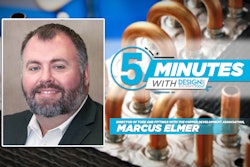It’s been a tumultuous few years for the Northeast Ohio city of Lordstown.
After more than a half-century of making cars for General Motors, the automaker closed down the local assembly plant in 2019 — then announced it would sell the factory to a newly formed electric vehicle maker bearing the city’s name. Although Lordstown Motors Corp. would employ a fraction of GM’s former workforce, the company appeared poised to leap into the nascent market for electric pickups with its Endurance model — slated to begin production in the fall.
Earlier this year, in fact, Lordstown Motors said it had received orders for more than 100,000 pickups, primarily from fleet operators such as utilities and municipal governments.
But a new report suggests those orders are largely smoke and mirrors, and the company now faces an investor lawsuit and a federal investigation.
The probe, the Cleveland Plain Dealer reports, stems from a document issued by Hindenburg Research — a short-selling firm that has taken a position against the company — under the less-than-subtle headline, “The Lordstown Motors Mirage.”
The report alleged that Lordstown’s order numbers were a “largely fictitious” prop for raising investment capital and gaining clout in the auto sector. It added that the company has “no revenue and no sellable product,” and claimed that the company’s prototype truck burst into flames 10 minutes into its first test drive.
A Lordstown investor subsequently filed a federal lawsuit alleging that the company misled investors about its progress, and Lordstown acknowledged that the U.S. Securities and Exchange Commission had opened an investigation into the matter.
Lordstown CEO Steve Burns said on an earnings call that the company had opened its own review of the allegations and could not comment further. Outside the official company call, however, Burns reportedly had plenty of comments.
He alleged that Hindenburg's report contained half-truths and lies, and characterized the firm as “haters.” He also told CNBC that the company had always characterized its “pre-orders” as non-binding — adding, “I don’t think anyone thought that we had actual orders, right?”






















